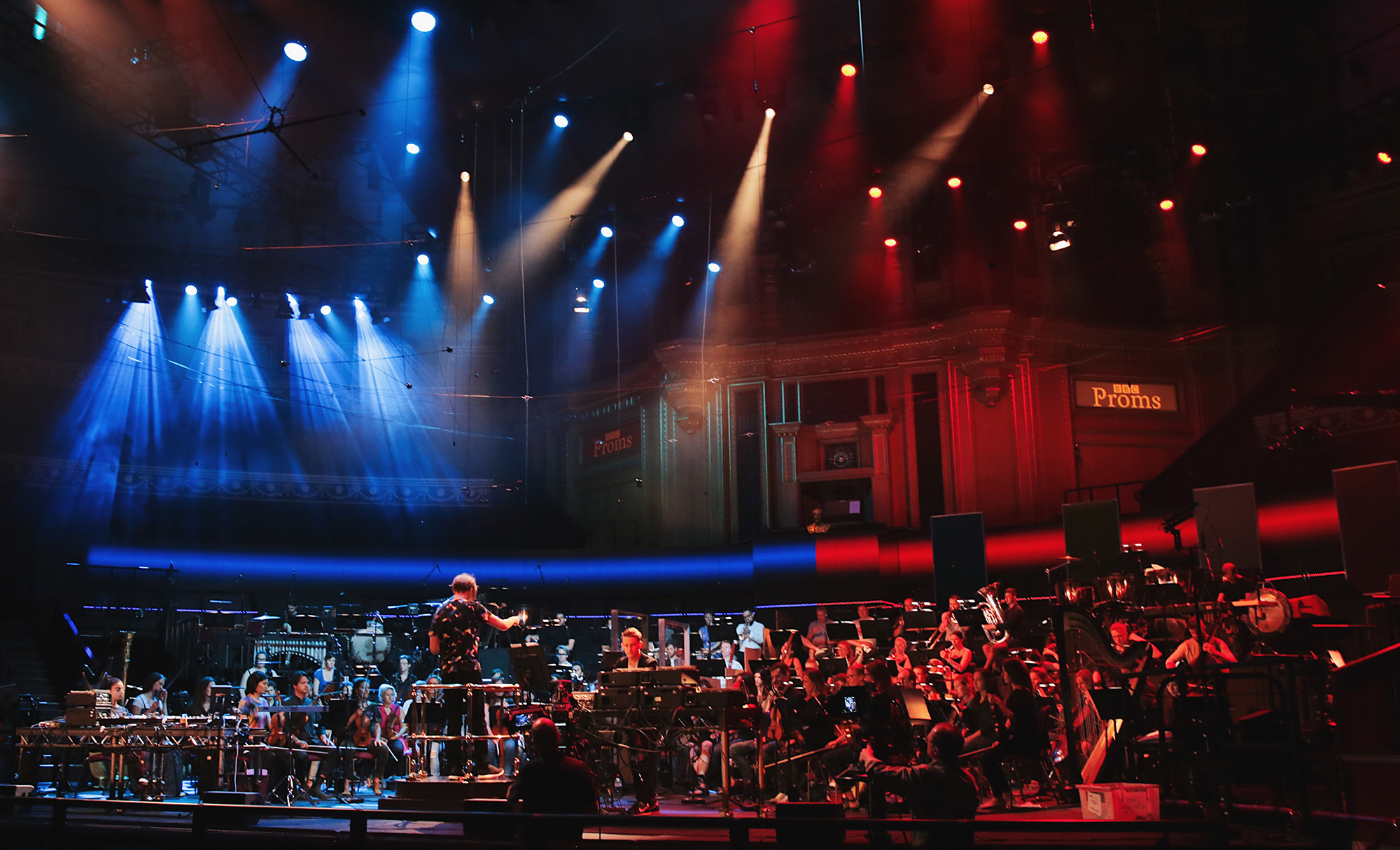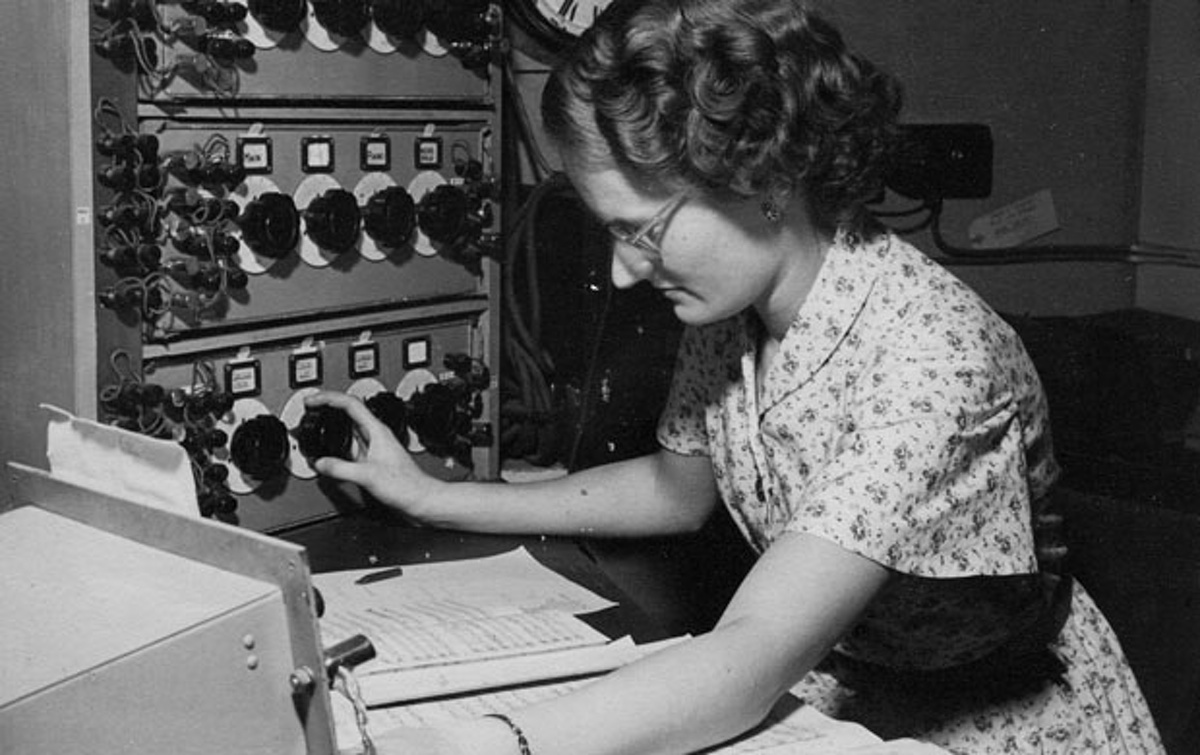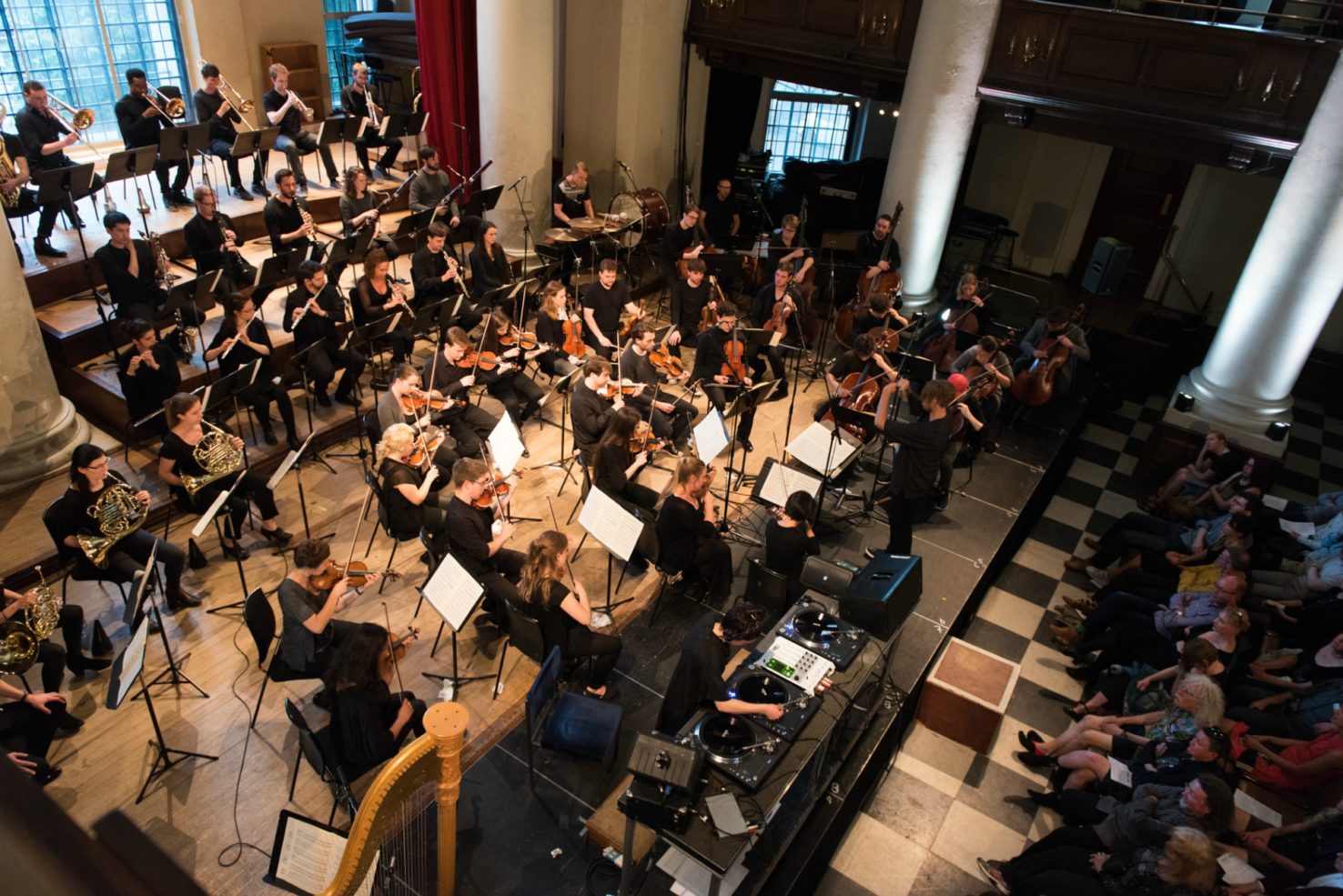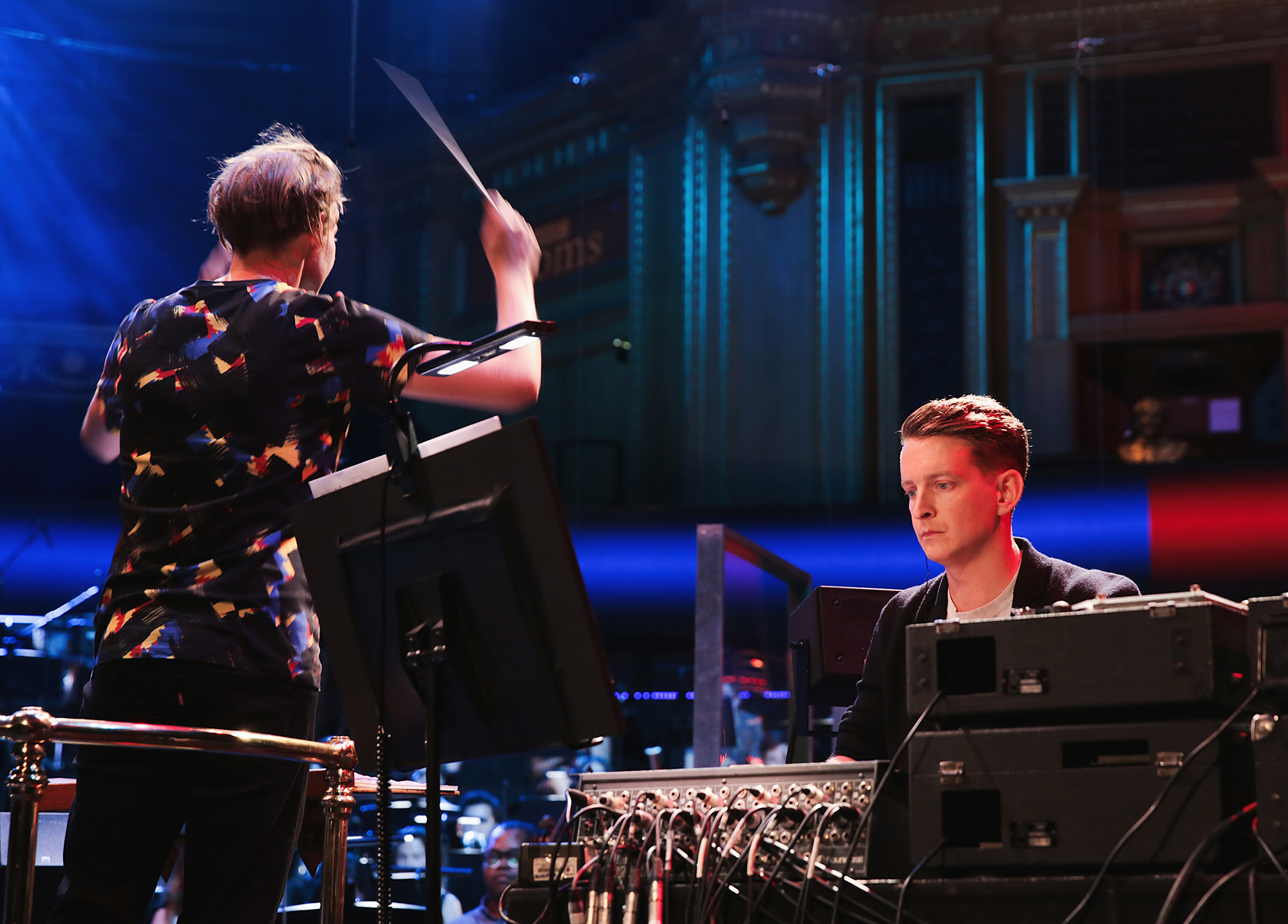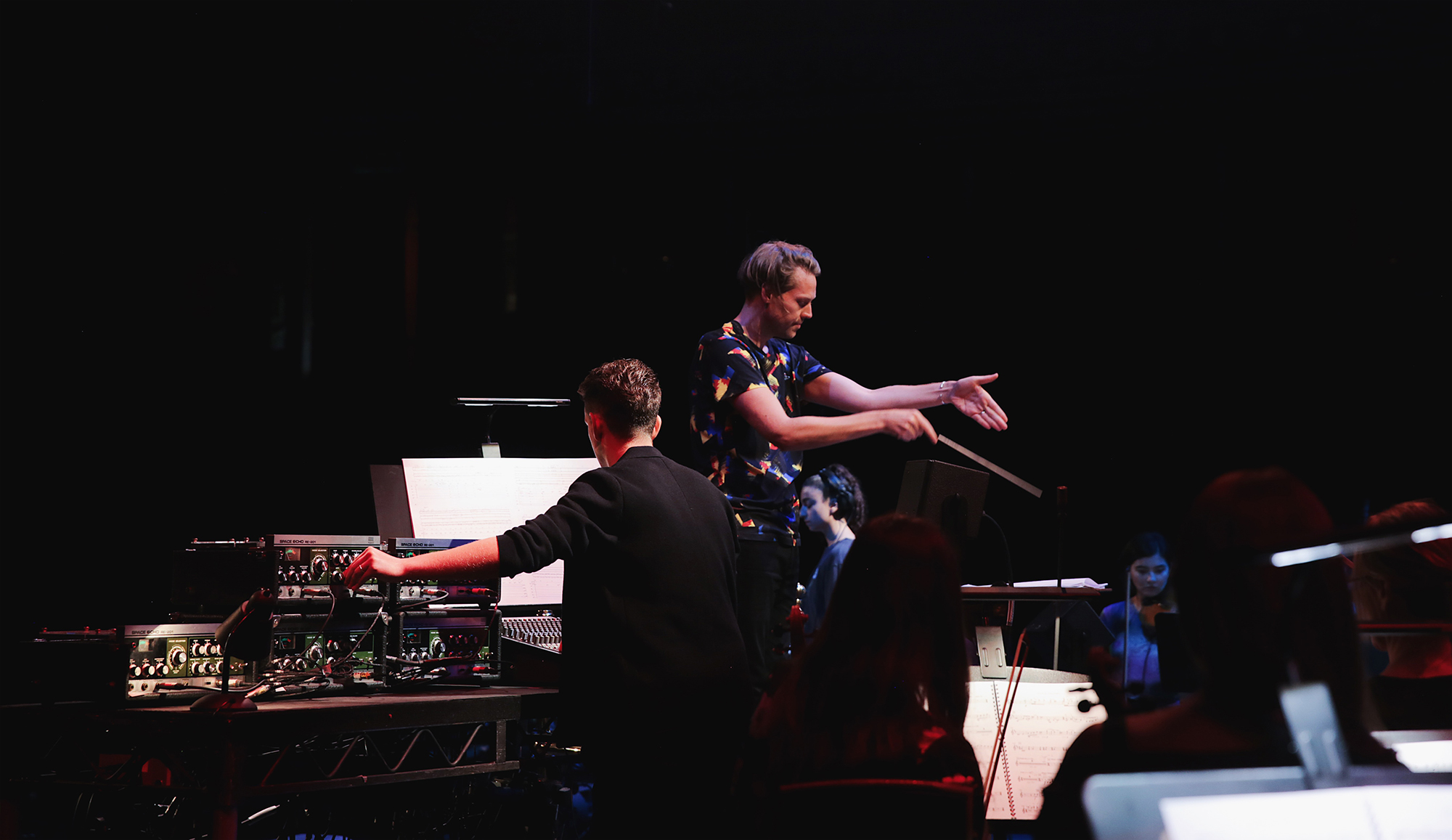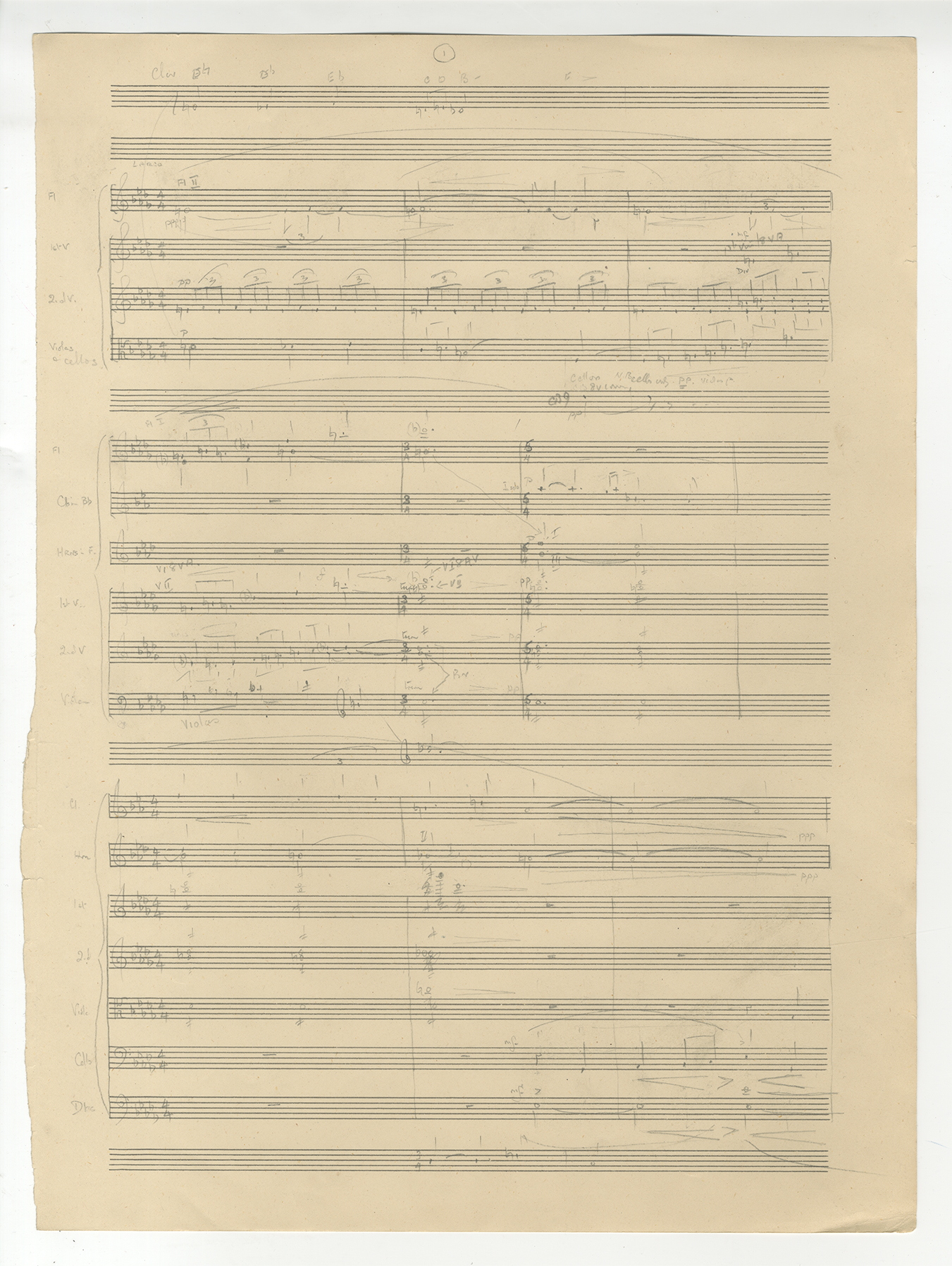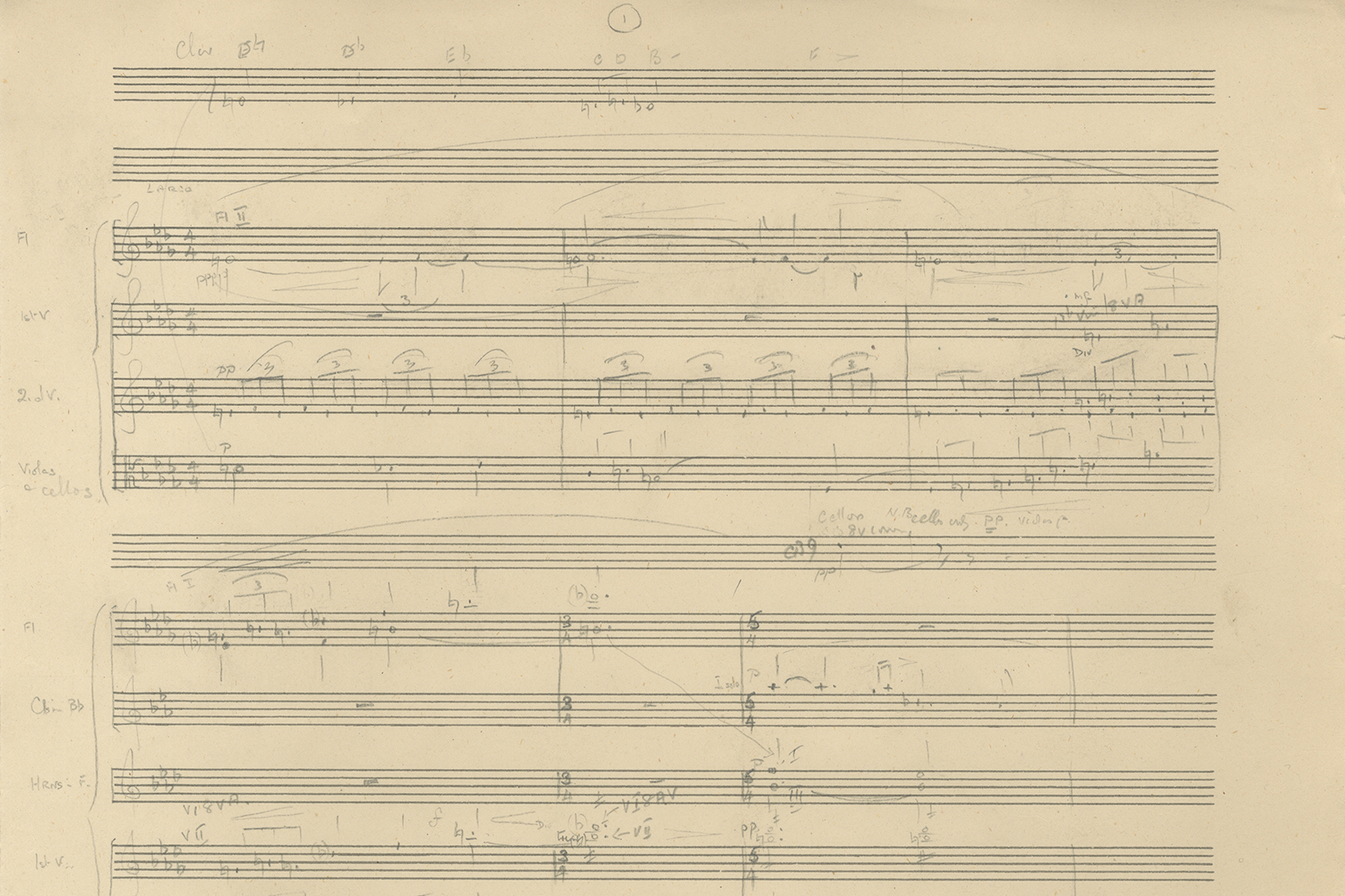Still Point
By Daphne Oram
(composed 1948–9)
for Double Orchestra, Treated Instrumental Recordings, Three Prerecorded 78rpm Discs, Five Microphones, Echo and Tone Controls
Approx 33’
Realised by James Bulley and Shiva Feshareki
with the London Contemporary Orchestra.
World Premiere Performance, BBC Prom 13, Royal Albert Hall, London
23 July 2018
Draft Score Performance, Deep Minimalism Festival, St. John’s Smith Square, London.
24 June 2016
Commissioned by the Southbank Centre and the BBC.
In 1948, whilst working as a radio programme engineer at the BBC, Daphne Oram began composing a new and highly innovative piece for double orchestra, entitled Still Point. Oram was only 23 years old when she wrote Still Point, and the piece reflects her earlier experiences working under the glass dome of the Royal Albert Hall as bombs rained down over London. As a programme engineer during World War Two, she was tasked with balancing the radio broadcast of live concerts in the hall (including the BBC Proms season), whilst also keeping 78rpm disc recordings cued up ready for broadcast if the hall was evacuated—the music would carry on regardless! These early experiences using turntables and mixing sound in the complex acoustics of the Royal Albert Hall inspired Oram to explore the spatial and acoustic aspects of orchestral composition, harnessing the newfound potential for live manipulation of amplified sound in performance. The final score for Still Point, scored in April 1950, details ‘pre-recordings to be mixed in at varying speeds, backwards & with filterings plus reverberation,’ and was submitted to the BBC as a potential entry for the inaugural Prix Italia in 1950. However, it was turned down on the basis that the work could only be judged as a ‘straight score’ and the adjudicators wouldn’t understand the ‘acoustic variants and pre-recording techniques’ utilised. Brian Hodgson, a colleague at the BBC (and fellow member of the BBC Radiophonic Workshop) later commented to Oram that ‘if they had understood one feels they would have been even more ‘anti’!’.
Still Point is thought to be the earliest example of a composition specifying realtime electronic transformation of instrumental sounds, and in retrospect can be seen as decades ahead of its time with its explorations of space and acoustic architecture. In the work the double orchestra is ‘acoustically treated,’ creating one ‘dry’ orchestra (using acoustic baffles) and one ‘wet’ orchestra, which are then manipulated live in performance through turntables, amplification and echo effects. Still Point was to be the last piece that Oram wrote for orchestra before she co-founded the BBC Radiophonic workshop in 1958, laying the roots for the new fields of British electronic music that were to come.
Over a four-year period, composers Shiva Feshareki and James Bulley extensively researched within the Daphne Oram Collection and related archives across Britain in order to realise this world premiere performance of Oram’s final score for Still Point. Previously thought lost for over twenty years, Bulley discovered the score in December 2016 amongst the papers of composer Hugh Davies. Tonight’s performance will follow Oram’s exact specification, using turntable discs that were recorded in Maida Vale’s renowned Studio 1 using a historically-accurate live lathe-cutting technique, engineered by Aleks Kolkowski. The turntable part for this evening’s performance has been constructed by Feshareki using Oram’s detailed handwritten instructions found in the archive. Feshareki will then develop these ideas incorporating her own techniques and understanding of Oram’s musical aesthetic.
Excerpt from: Still Point BBC Proms Programme Notes by James Bulley
Further information
Daphne Oram BBC Proms Profile by James Bulley
BBC Prom 13: Pioneers of Sound Microsite
